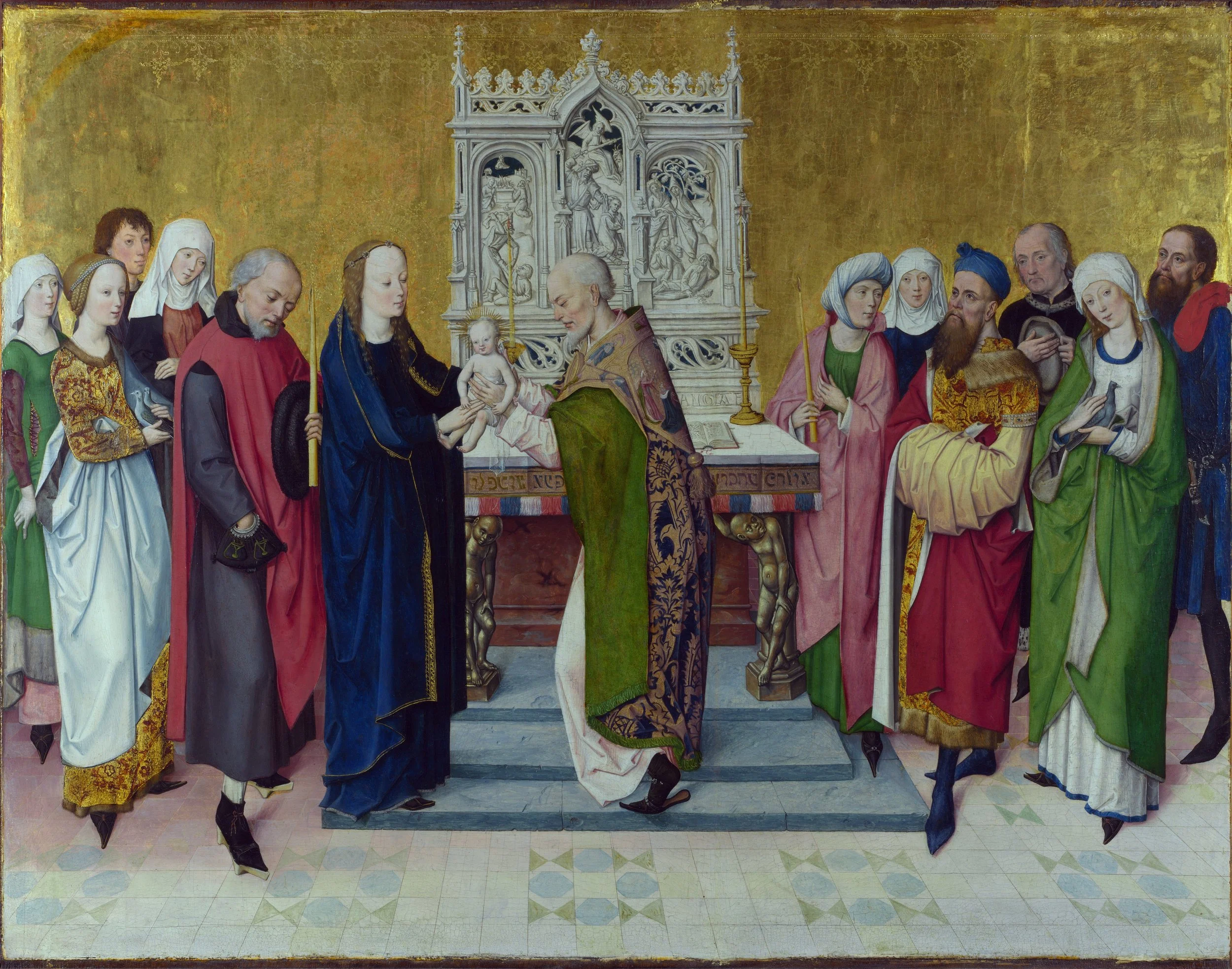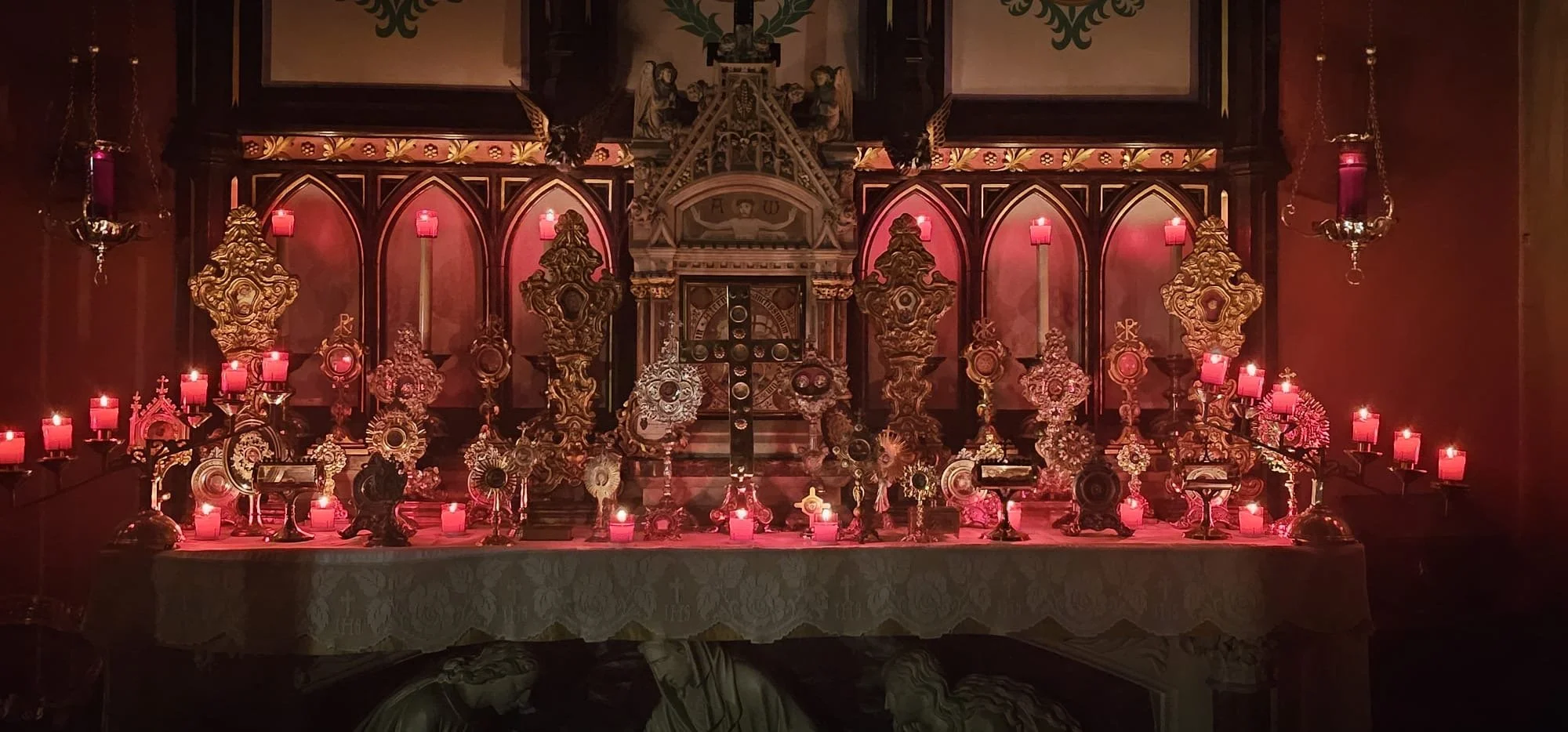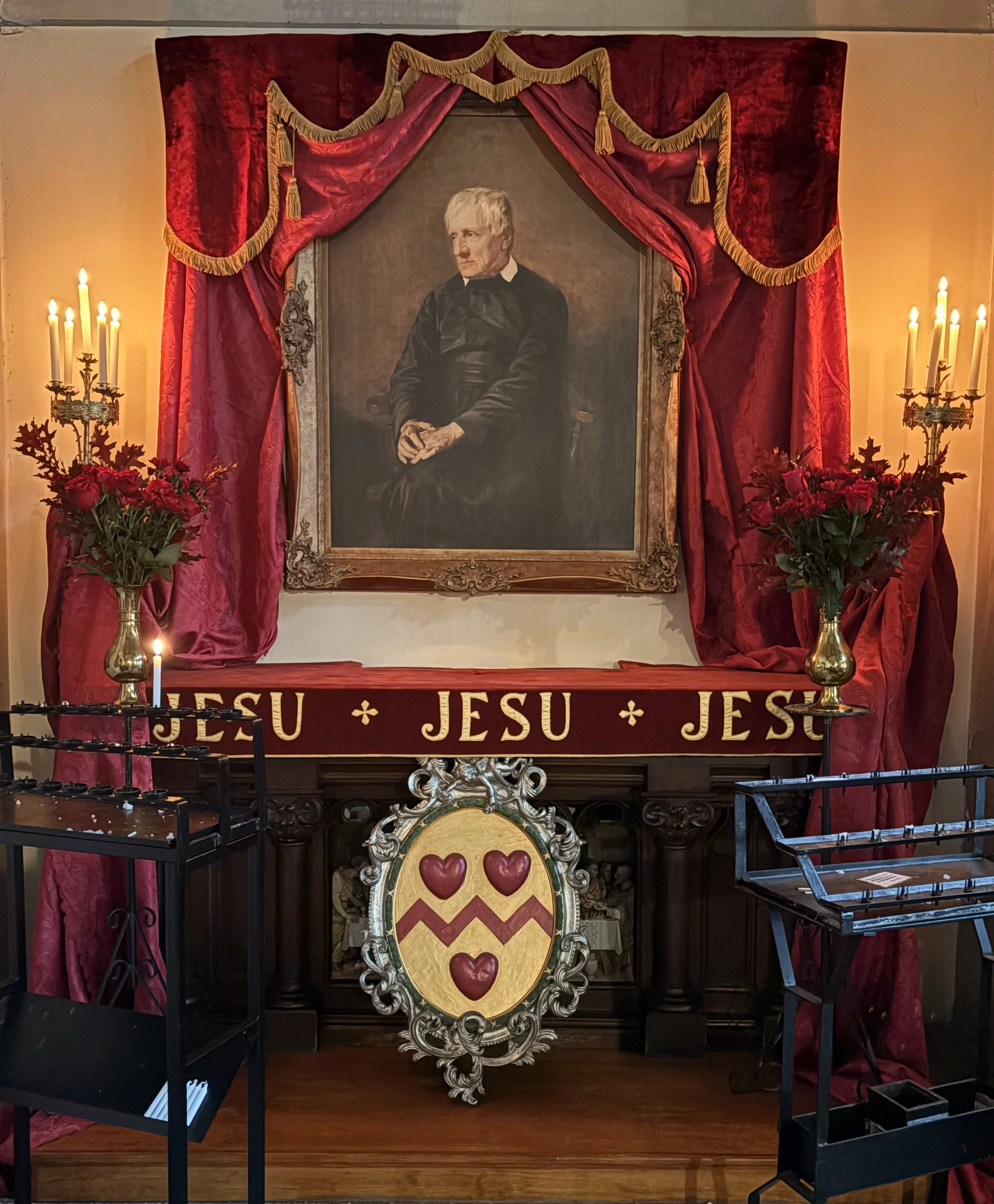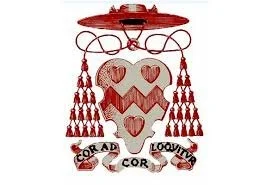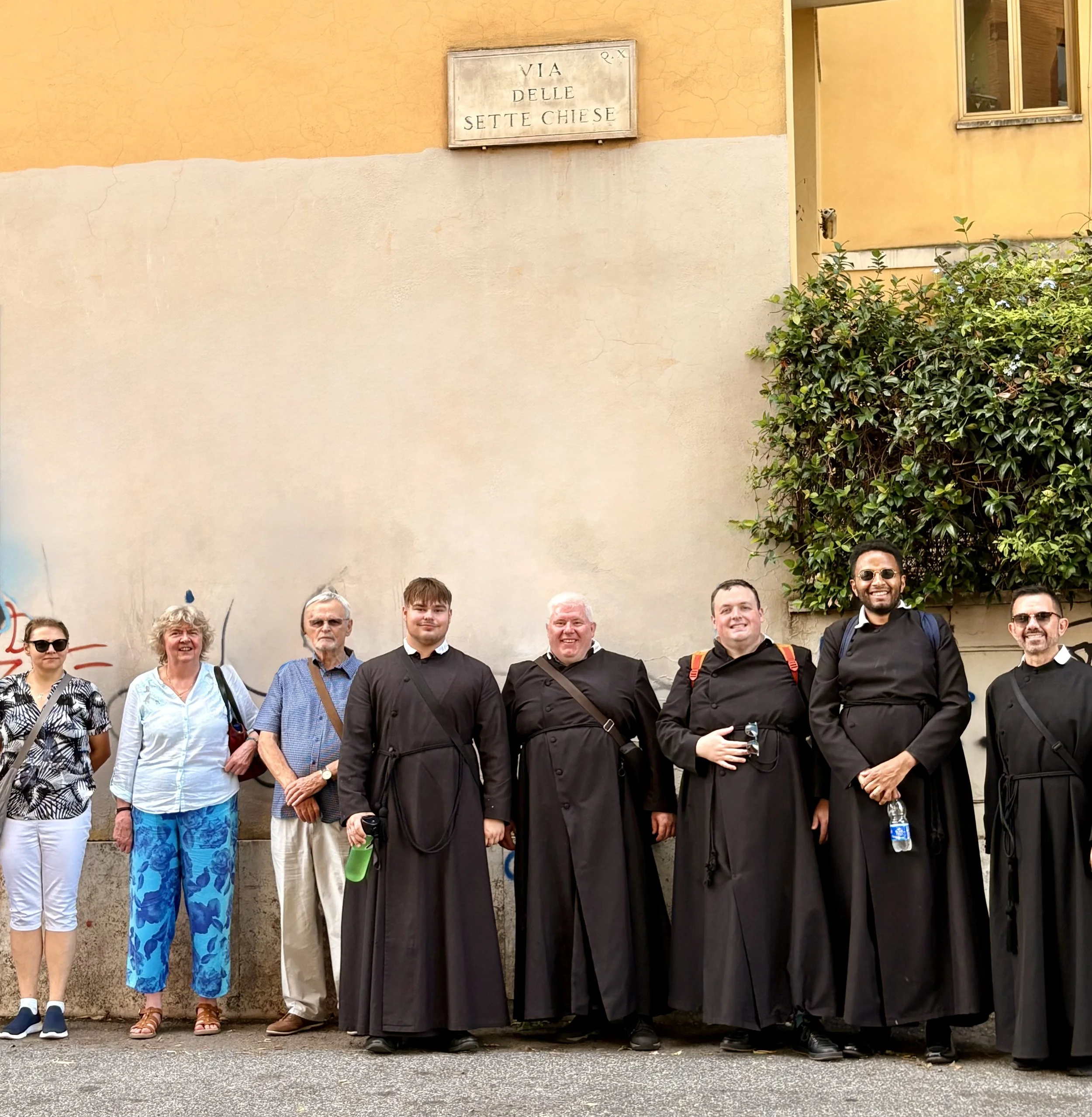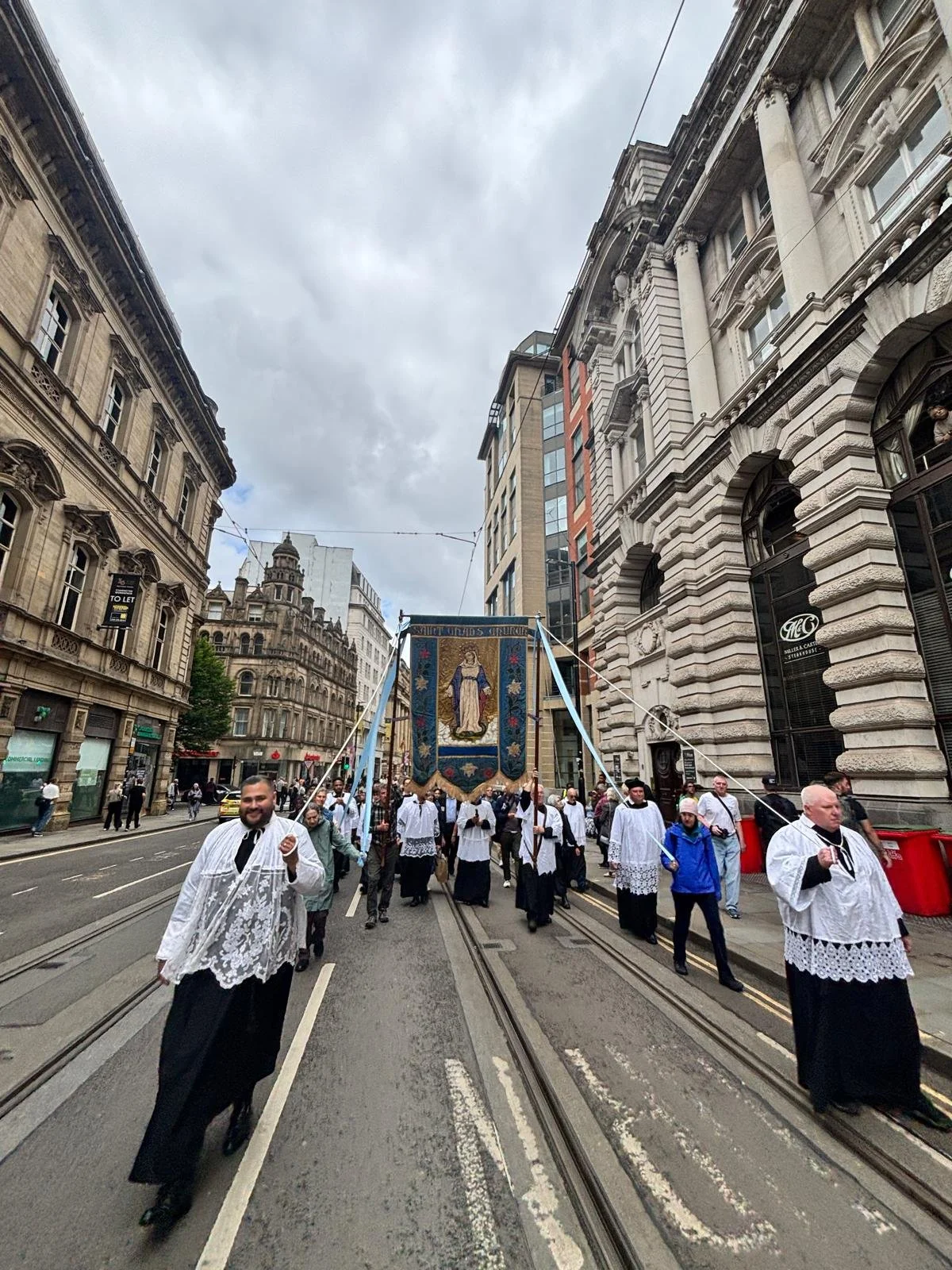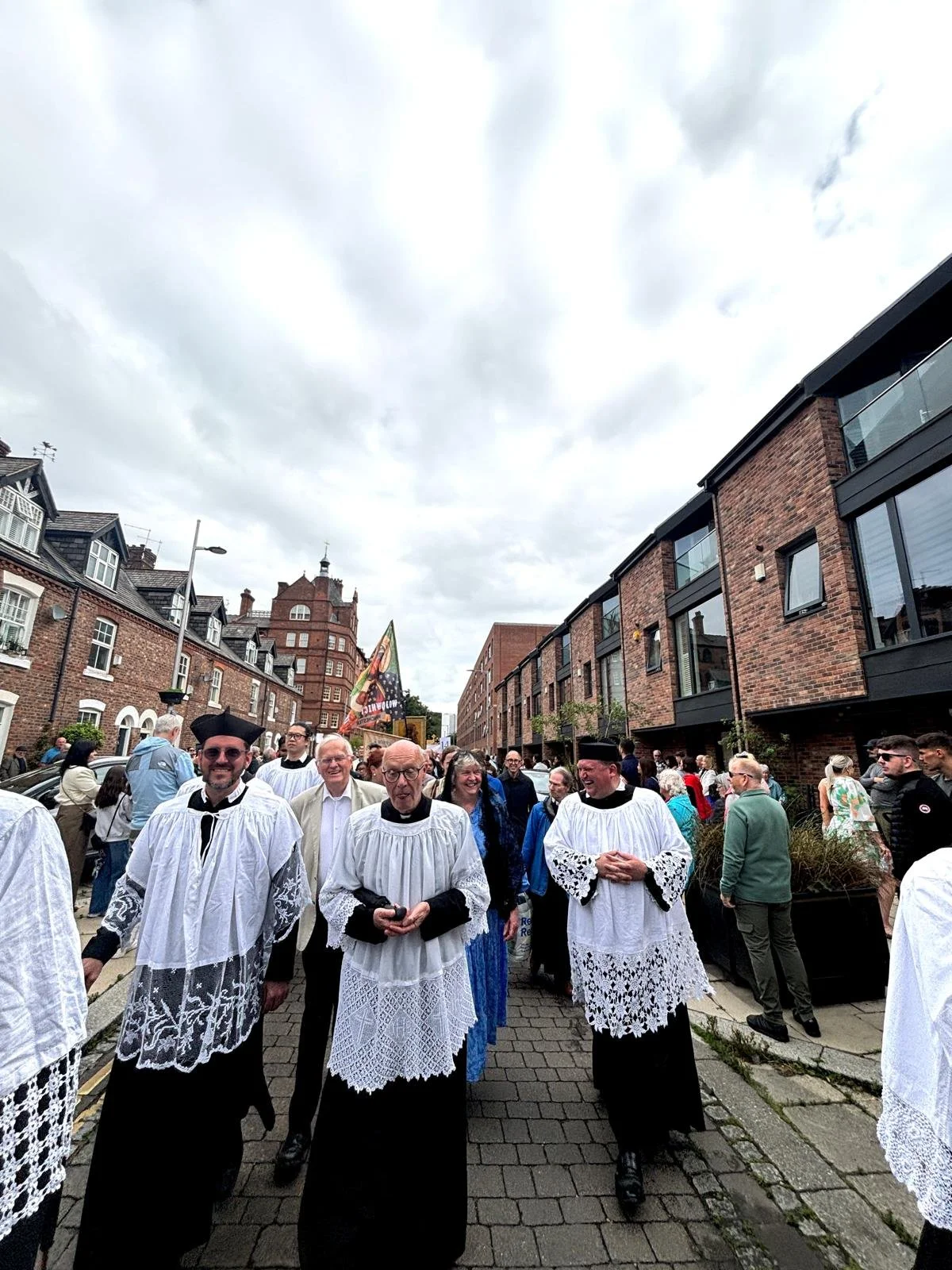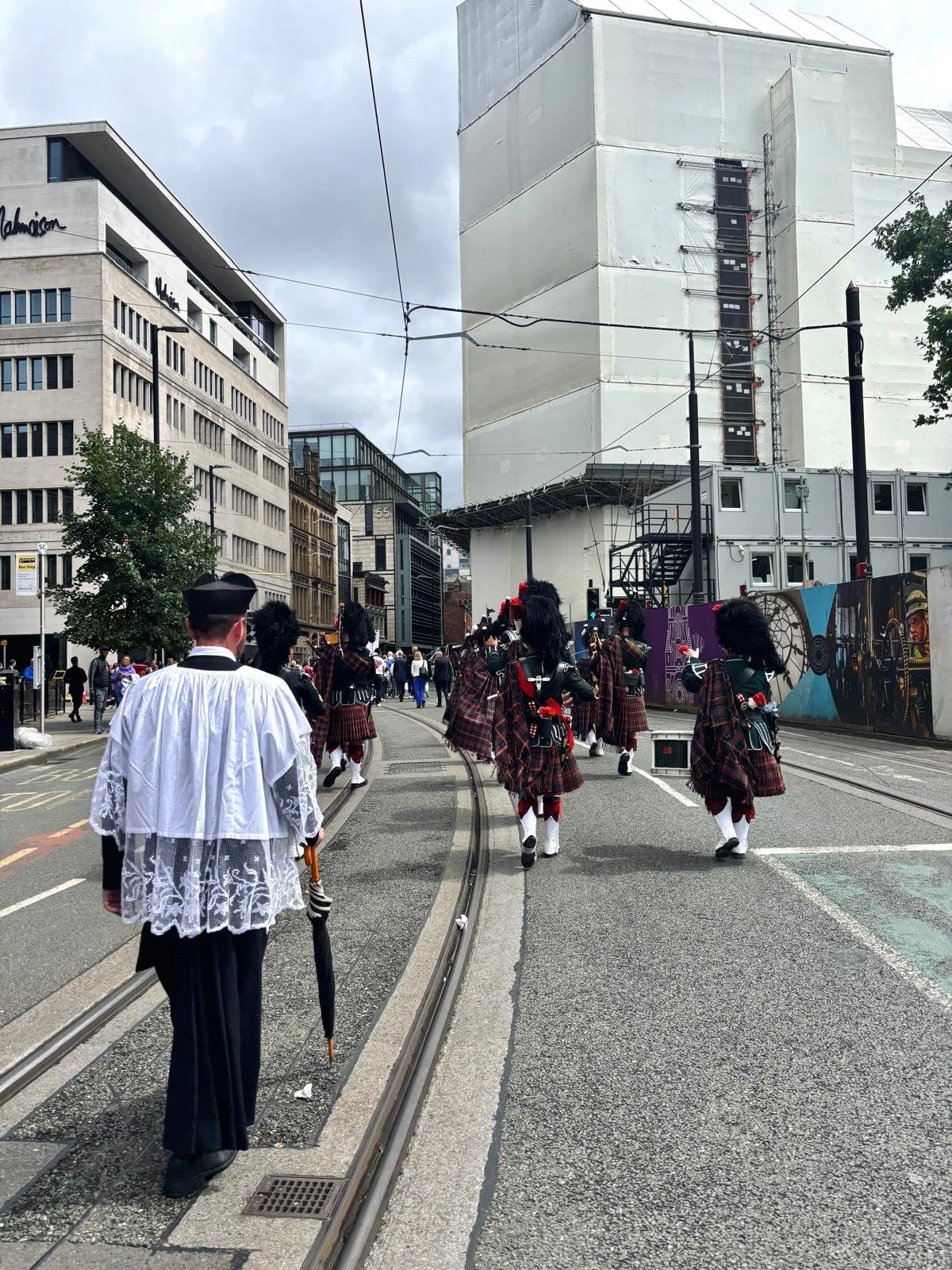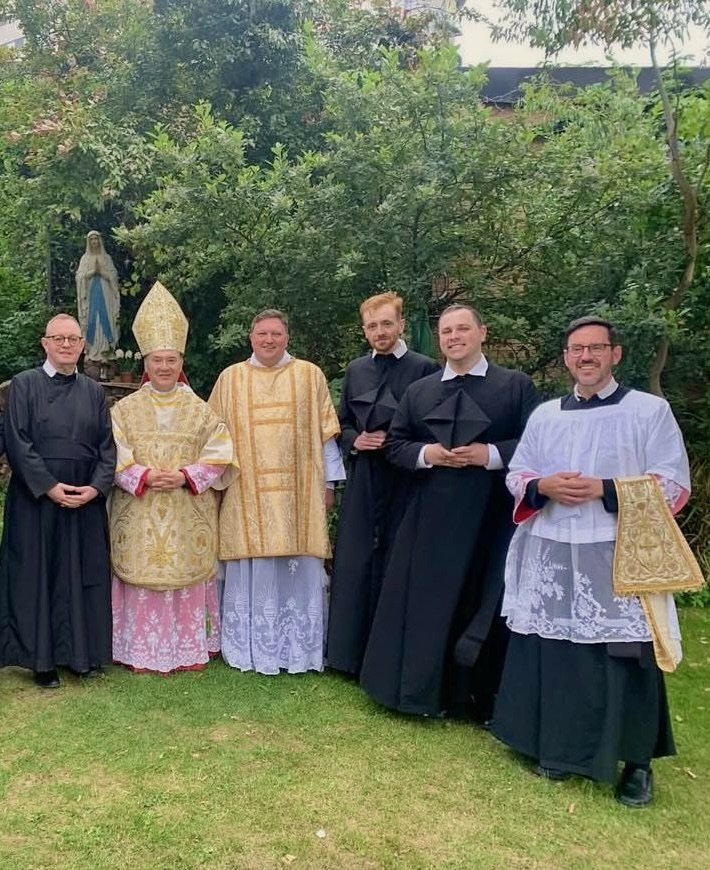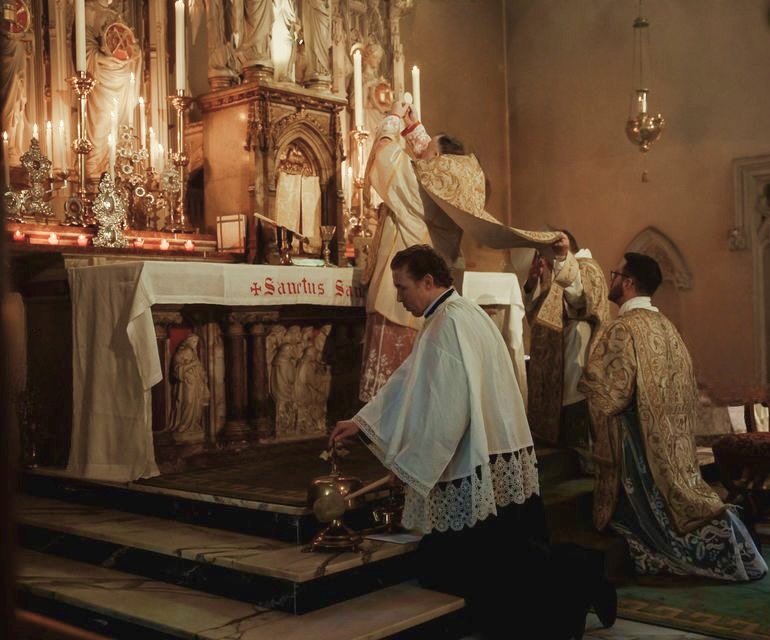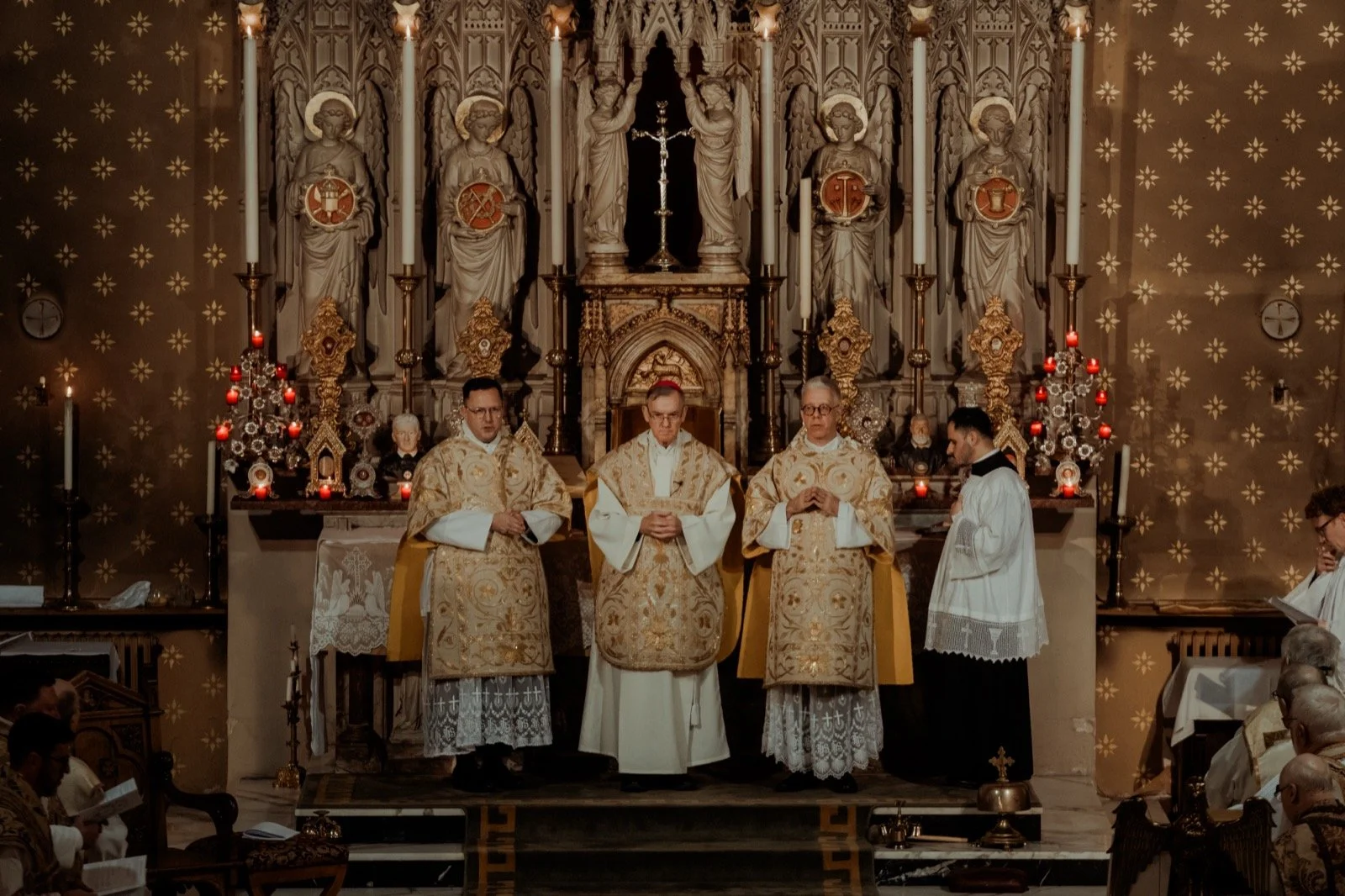
The Manchester Oratory
St Chad’s Church, Cheetham Hill Road, Manchester. M4 4EX.
2026
“Let us begin to do some good.”
LENT 2026
Ash Wednesday Masses: 7am & 5.30pm
Stations of the Cross: Fridays after 5.30pm Mass
Candlemas
with
Procession of Candles
Monday, 2nd February, 5.30pm
The last day of Christmastide.
Blessing of Throats after 5.30pm Mass
in anticipation of St Blaise’ Day
The Baptism of Our Lord Jesus Christ
This is my Beloved Son in whom I am well pleased.
The Epiphany of Our Lord
6th January, 2026.
HOLYDAY OF OBLIGATION
Fr Fabian Trevithick
Priestly Ordination
12th December, 2025.
All Saints’ Day 2025
SACRED RELICS
Some of our collection of the Relics of the Saints, exposed for public veneration on All Saints Day.
Our Cardinal
St John Henry Newman
Doctor of the Universal Church
The Founder of the first Oratory in England (Birmingham), convert from Anglicanism, one of the greatest thinkers of the last two centuries, a pivotal figure in the battle against Liberalism in religion, the saintly Oratorian cardinal John Henry Newman was, on 1st November, proclaimed:
‘Doctor of the Universal Church &
Co-Patron with St Thomas Aquinas
of the Church’s Educational Mission’.
The same day we celebrated the sixth anniversary of our canonical erection as the Manchester Oratory, the fourth Oratory to be established in England. Deo gratias!
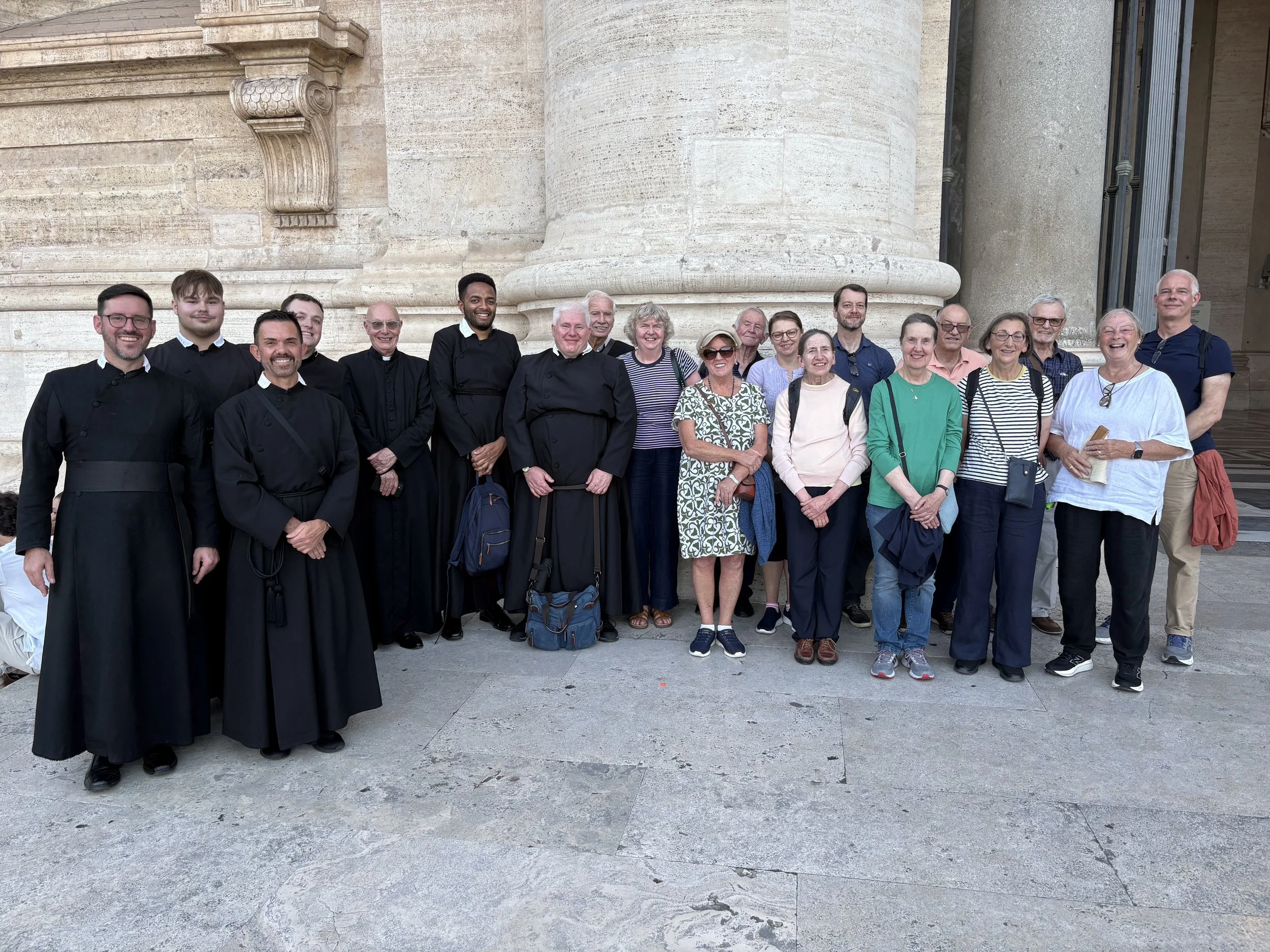
ROME 2025
Seven Churches Pilgrimage
SEVEN CHURCHES’
WAY
Walking the very same road which St Philip himself trod five centuries ago.
The Madonna Del Rosario Procession
29th June, 2025.
SAINTS PETER & PAUL
Tu es Petrus, et super hanc petram ædificabo Ecclesiam meam.
-
Mass: 7am & 5.30pm
Confessions: 7.30am - 8am, 4.45pm - 5.15pm
Rosary: 5pm
-
Mass: 11am
Rosary: 11:30am
Confessions: 11.30am - 12.30pm
Eucharistic Adoration: 6.30pm - 7.30pm
Confessions: 6.30 - 7.10pm
-
Confessions: 7:30am
Mass: 8am
Confessions: 10:30am
Solemn Sung Mass: 11am
Vespers and Benediction: 4pm
Mass (1962 Missal): 4.45pm
Confessions during Mass
Times of Holy Mass and other Services
The Idea of the Oratory
We are a group of secular Priests and Brothers who follow the example of our holy founder Saint Philip Neri by seeking to grow in holiness through living together as a community, and through the apostolic works that we undertake on behalf the faithful, especially daily Mass, Confessions and preaching. The solemn celebration of the Sacred Liturgy of the Roman Rite has always formed a central part of Oratorian life.
Saint Chad & St Chad's
Saint Chad & St Chad's
When the first Catholic chapel was built in Manchester after the ‘Reformation’ in the eighteenth century it was dedicated to St Chad, the seventh-century bishop of this region of England (then part of the Kingdom of Mercia). In choosing him as its beloved patron the Catholics of Manchester, finally re-emerging after centuries of persecution, were keen to show that their faith and that of St Chad were one and the same; that an unbroken unity of faith, sacraments and priesthood - the Catholic Church - had continued to exist here down through the centuries.
Whatever the political and religious upheavals of the day, there has always been a group of Catholics in Manchester stretching back to the time of the Roman garrison nearly two thousand years ago. They had been brought together by St Chad and then flourished in the Middle Ages, with great devotion to Our Lady the Mother of God, and to St Peter, from whose successors they received the Gospel. In the winter of persecution they remained steadfast but hidden, bloodied but not beaten, to come out into the open again and blossom in the Second Spring of our holy faith in the nineteenth century.
St Chad's personal popularity and influence has lived on, not only in the dedication of many ancient churches in the region, but also in the place-names of Manchester that were associated with him.
"So much did Chad endear himself to those whom he converted, that even to this day we find traces of his missionary labours in the numerous place-names in the Manchester district that have been given in honour of the Mercian Bishop. The valley of the Irk, along which he must have toiled repeatedly, is particularly rich in these name memorials. Chadderton is simply Chad's town, Chadkirk is Chad's church, Cheetham is Chad's dwelling-place, Cheetwood is Chad's wood, Chat Moss is Chad's moor, Cheadle is Chad's hill, Cheadle Hulme is the meadow by Chad's hill, and so forth" (from John O'Dea, 1910, The Story of the Old Faith in Manchester).
His kindly presence and his faithfulness to Christ and His Church won many souls to God in his day. We pray that his personal influence may still be found today as the Catholics of Manchester work to build the Kingdom of God, to hand on what has been given to us from our fathers and in the faith.



